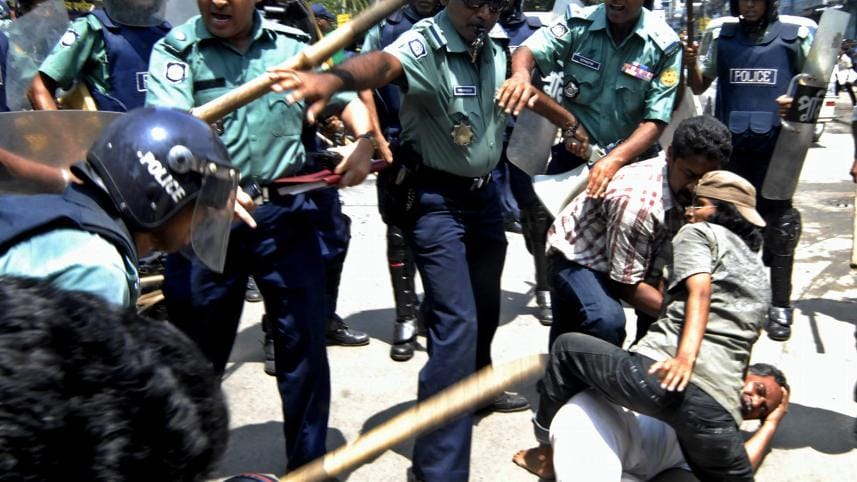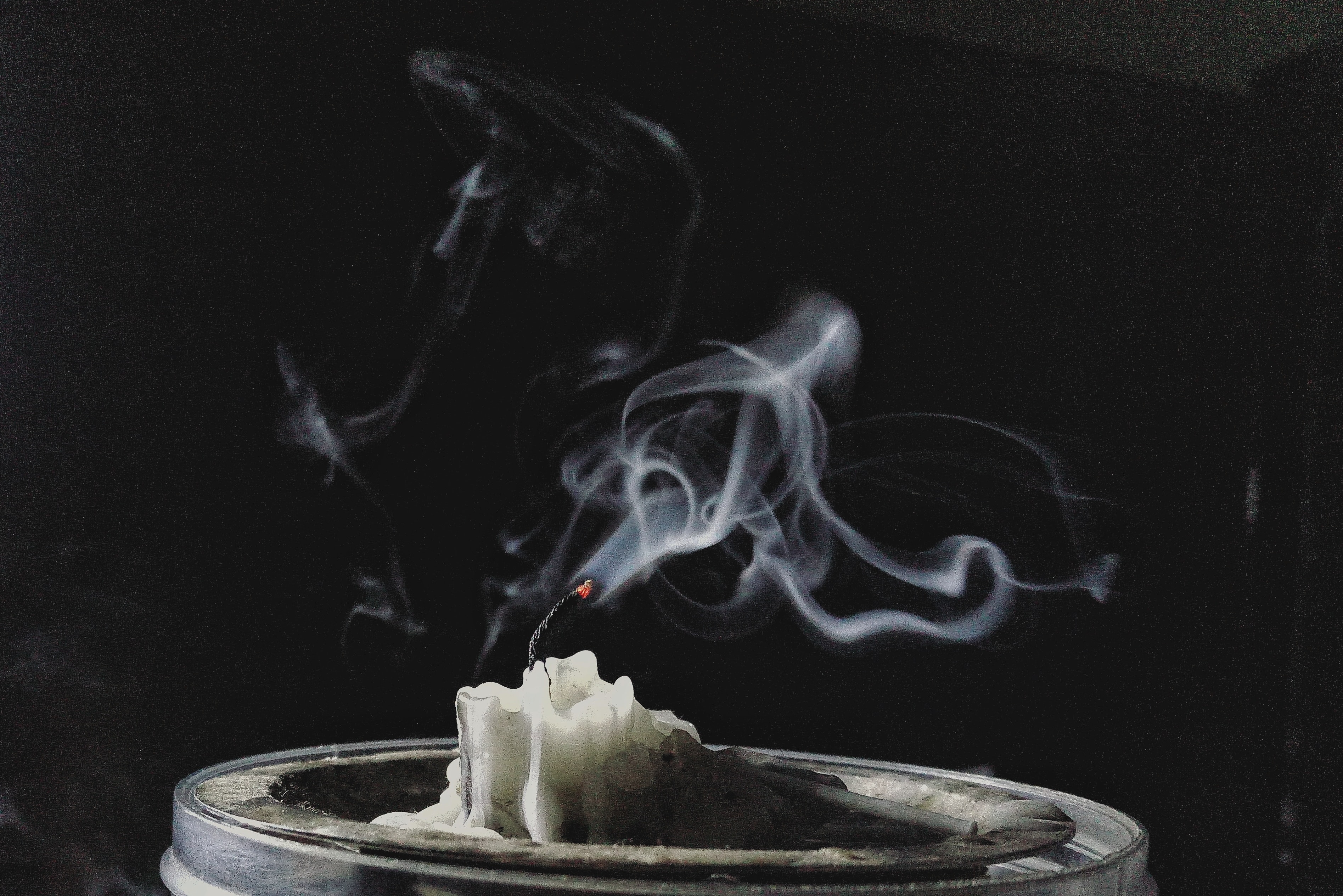A gas export deal won't ensure energy security for us

Since 2010, the government has marked August 9 as National Energy Security Day to commemorate a pivotal event that took place in 1975. That year, on August 9, several gas fields in Bakhrabad, Titas, Rashidpur, Kailashtilla, and Habiganj were acquired from the international oil company Shell. These fields were taken over by a national organisation named Petrobangla. Bangladesh made a very timely decision that helped the country gain authority over its own resources, and to develop expertise and institutions in the following decades. Nationalisation of natural resources was a matter of struggle in post-colonial countries at the time. Despite imperialist threats, many newly independent countries tried to get a hold over their own resources. The primary objective was to ensure full public ownership over public resources to ensure the best possible utilisation for national development and public welfare.
Paradoxically, as the government of Bangladesh celebrates this day now, it appears to be pursuing policies that counter the original purpose.
Since the 1980s, various international corporate groups, with the help of local partners, have formed alliances with the aim of exploiting Bangladesh's abundant natural resources and making quick profits. In this vein, instead of strengthening national capability, policies were formulated to lease out oil and natural gas fields to international companies. This direction gained momentum with the signing of production sharing contracts (PSCs) with multinational oil companies first in 1993 and then again in 1997. As a result, the state of both fiscal deficit and foreign exchange reserves deteriorated. In the late 1990s, Unocal Corporation from the US sought to export gas from Bangladesh to India, with the World Bank, the Asian Development Bank (ADB), ministers, diplomats, and some media organisations fervently supporting this endeavour. Bangladesh was touted as having substantial gas reserves, and plans to initiate exports were widely publicised. Local partners of Unocal took the lead in finalising the export decision.
Because of the government's reliance on private companies, Bangladesh is now trapped in huge amounts of foreign debt and obligations of massive imports. The country is already due to spend billions of dollars to import LNG and coal, despite the dwindling forex reserves.
While discussions on gas exports were underway, a citizens' alliance, the National Committee to Protect Oil, Gas, Mineral Resources, Power and Ports (NCBD), along with other experts, strongly opposed the idea. Nationwide public protests led by the committee and the consequent strong public opinions ultimately resulted in the halting of gas exports. The NCBD also urged the government to enact the Mineral Resource Export Ban Act and even drafted the legislation through a committee led by Justice Golam Rabbani to facilitate its passage, in order to ensure that Bangladesh's mineral resources remained in the hands of its people. Before this, the committee had presented a seven-point demand, at the core of which was the assertion that Bangladesh's non-renewable resources were limited and should not be subjected to export contracts. The committee insisted on limited extraction in line with domestic demand and full utilisation for national development in the most environment-friendly ways.
Regrettably, the government has not passed the Mineral Resource Export Ban Act. Moreover, little progress has been made in enhancing national capabilities. Nonetheless, efforts to export gas persisted, culminating in a substantial contract with the US company ConocoPhillips in 2009. When the contract with ConocoPhillips was signed, it included a clause allowing exports. Opposition to this clause led to intimidation and threats from the government, who argued that rejecting the deal would be detrimental. The government even took coercive measures against the protesting citizens. Ultimately, ConocoPhillips never fulfilled its exploration and extraction commitments.
However, the tone of those who championed gas exports in the late 90s has shifted dramatically in recent years. Many of them are now pointing to a gas scarcity in Bangladesh, making arguments for the import of expensive LNG, establishment of coal-based and nuclear power plants, and also advocating coal mining. Now, ExxonMobil, another US company, wants to explore 15 of Bangladesh's offshore blocks. And the relevant ministry is, yet again, eager to give them what they want, instead of developing our own skills and capacity. The price we will have to pay to buy gas from them is now proposed to be three times the amount that was agreed upon before. Moreover, the government's share in "profit gas" has also been proposed to be reduced from 55-80 percent to 40-70 percent. And, as usual, there is an export provision.
Now, why do we oppose PSCs or any form of leasing out of energy blocks to multinational companies? First, since these companies are hungry for profits, they will try to extract as much oil and gas without environmental protection, as demonstrated in the Magurchhara and Tengratila blowouts under US and Canadian companies. Second, since the domestic market does not need the amount of these natural resources produced, companies opt for export. Therefore, we may soon see the end of our limited resources, along with substantial environmental disasters. In contrast, if a national agency takes the lead, it will extract resources as per national demands. This will help us ensure energy security for a longer period of time. Third, this will be much cheaper and no pressure will be exerted on foreign currency reserves. Fourth, transitioning to renewable energy in this case will be easier.
Two points of objection are usually raised by pro-corporate advocates against this position: 1) we do not have enough capital; and 2) we do not have enough expertise. Both these arguments are wrong. Why, after 52 years of gaining independence, are these arguments still made? Expertise is not built out of the blue. It requires planning and initiatives. Because of different policies from different governments over the years, we still face problems in terms of expertise and building capable institutions. What is the use of so many science, technology, and engineering universities if our national capacity remain lacking anyway?
State Minister for Power, Energy and Mineral Resources Nasrul Hamid recently said the government had paid Tk 104,926 crore over the last 15 years as capacity charges to private power plants. The government's excuse of insufficient capital does not hold, given that ConocoPhillips was planning to invest only $100 million over five years – a sum that is nothing compared to the huge amounts paid to numerous private power plants for sitting idle. In a recent proposal, ExxonMobil reportedly also offered $100 million for the survey and development of gas blocks. This goes to show that the government has been spending more on wasteful and corrupt transactions than for essential tasks.
Because of the government's reliance on private companies, Bangladesh is now trapped in huge amounts of foreign debt and obligations of massive imports. The country is already due to spend billions of dollars to import LNG and coal, despite the dwindling forex reserves.
To address the country's inexperience and limitations, experts suggest that Bangladesh retain full ownership and authority over its resources and work on a contract basis, that is, by delegating specific tasks (for which we lack expertise) as contracts to foreign companies. This approach offers several advantages over allowing foreign ownership.
If the government really believes in the spirit of National Energy Security Day, they must take a fundamentally different path to ensure energy security and the people's right over their own resources. We must impose a ban on the export of mineral resources and put all our efforts behind increasing our own capabilities.
Translated from Bangla by Monorom Polok.
Anu Muhammad is a former professor of economics at Jahangirnagar University.
Views expressed in this article are the author's own.
Follow The Daily Star Opinion on Facebook for the latest opinions, commentaries and analyses by experts and professionals. To contribute your article or letter to The Daily Star Opinion, see our guidelines for submission.




 For all latest news, follow The Daily Star's Google News channel.
For all latest news, follow The Daily Star's Google News channel. 

Comments